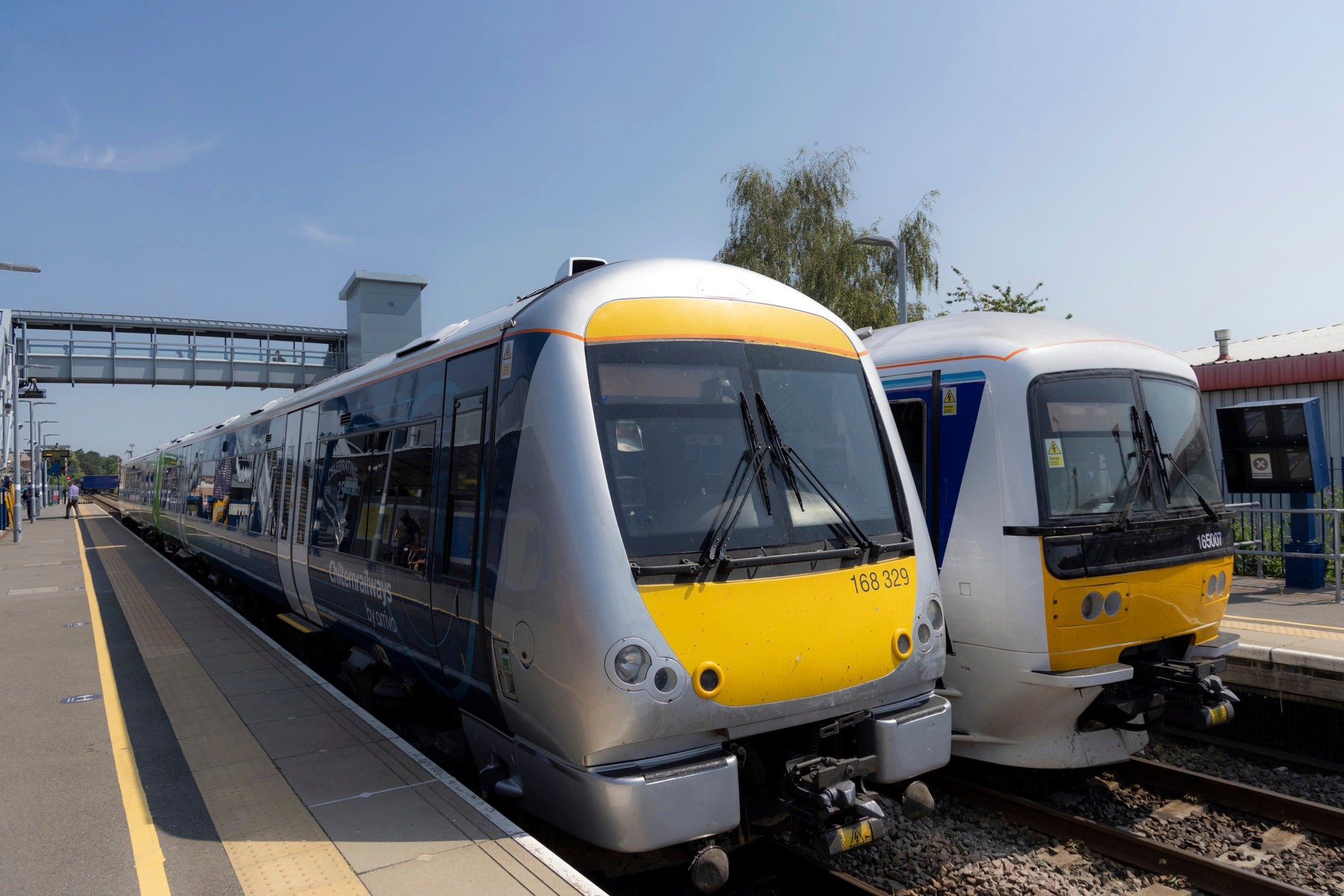Does travelling by train actually help solve the climate crisis?
Britain lags behind Europe in electrifying its railways – investment in green train travel is vital and the new HybridFLEX is a step in the right direction, writes Richard Allan


Decarbonisation is the central challenge of our generation. Accounting for more than a quarter of UK greenhouse gas emissions, transport has a big role to play in helping achieve net zero. Rail travel is far more efficient and lower impact than road, generating only 1 per cent of the emissions of today’s buses, cars, vans and trucks.
Less road traffic, fewer jams and less car parking all help towards net zero. As Britain builds back better, we need to tempt people out of their cars and back onto trains. A big priority for everyone working on the railway is to make customers feel welcome and safe when travelling by train.
Last week, Chiltern Railways celebrated its 25th anniversary of service, the longest continuous franchise in the UK. Rail has come a long way since we were awarded our first franchise back in 1996. Billions have been invested across the country in electrified lines, electric trains and better signalling to reduce our carbon footprint. But now – as other sectors of the economy deliver innovative, green solutions – rail must continue to invest in its own decarbonisation.
Today, almost 40 per cent of Britain’s mainline railways are electrified. That figure is much higher if you measure it in passenger miles because commuter lines around the busy southeast of England are mostly electric. But we lag behind most of Europe. As part of its Decarbonisation Strategy, the government has declared an ambitious goal to get rid of diesel-only trains by 2040 and ensure a net zero fleet by 2050. This will require major investments in electrification.
But for two decades, Britain’s railways will remain reliant on a large fleet of ageing diesel trains. Diesel is no longer acceptable for the neighbours, customers and communities we serve. Almost every council area on Chiltern’s network has declared a climate emergency – and many are grappling with air quality issues on their high streets and in town centres.
The challenge is particularly stark at Chiltern where, until now, we have operated an all-diesel fleet. But last Wednesday, a train left Marylebone Station, London, with no emissions to air for the first time since the station opened in 1899.
This HybridFLEX train is one of the first of its kind to use UK mainlines. Through a unique partnership between Chiltern, Porterbrook and Rolls-Royce, we have converted an existing diesel train into a diesel/electric hybrid for passenger service.
The train switches onto battery power for the “first and last mile” of journeys, making for cleaner, quieter and faster journeys. Battery operation reduces CO2 by 25 per cent, nitrous oxide by 70 per cent and particulates by 90 per cent. HybridFLEX runs emission-free in stations and depots, without diesel noise or fumes. This improves air quality and noise pollution for our passengers, staff and neighbours, with improved acceleration meaning faster journeys.
We are now training our drivers on the HybridFLEX before it enters regular service in the Autumn to assess how the concept will work in practice. The big question then is how the business case for converting all our diesel trains to HybridFLEX compares against the alternatives. This assessment is due to report next spring. The technology has been applied to more than 500 diesel trains in the UK today.
Rail operators like Chiltern must continue to develop innovative solutions that drive down greenhouse gases. Alongside diesel-to-hybrid technology, large-scale investments are being made in new hybrid, advanced battery and hydrogen trains. But delivering these technologies will require close collaboration between the government, Network Rail, operators, rolling-stock owners, train manufacturers and countless supply chain firms. By working together, rail can drive the green growth and prosperity we need to get Britain back on track.
Richard Allan is managing director of Chiltern Railways
To find out what others are saying and join the conversation scroll down for the comments section or click here for our most commented on articles
Join our commenting forum
Join thought-provoking conversations, follow other Independent readers and see their replies
Comments
Bookmark popover
Removed from bookmarks